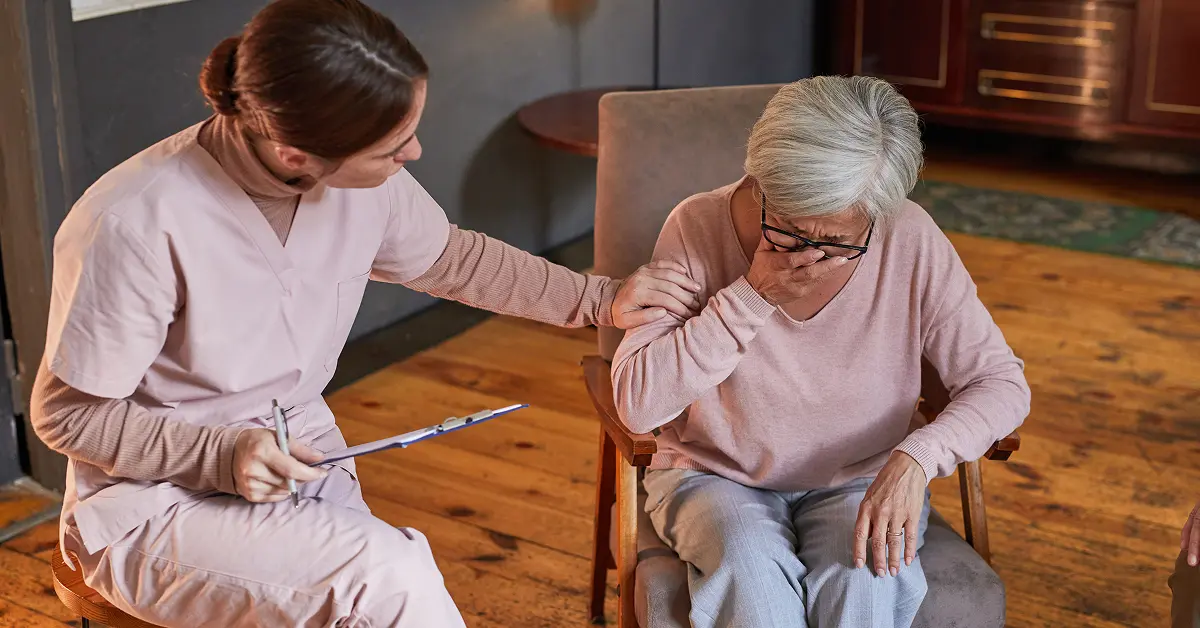Caring for elderly family members at home is both a responsibility and a privilege. As people age, their physical strength, vision, hearing, and memory often decline, making them more vulnerable to accidents and health risks. In India, where many Senior Care Services prefer to live with their families, caregivers play a crucial role in ensuring a safe, comfortable, and independent lifestyle for elders.
Creating a safe home environment requires planning, awareness, and regular adjustments to accommodate the changing needs of aging loved ones. In this blog, we will explore practical home safety tips every elderly caregiver should follow, covering areas such as fall prevention, kitchen safety, bathroom modifications, and general well-being.
Why Home Safety for Elders Matters
According to the National Crime Records Bureau (NCRB), falls are one of the leading causes of injuries among senior citizens in India. A minor fall can lead to fractures, mobility issues, or long-term health complications. Moreover, unsafe electrical wiring, slippery bathrooms, and cluttered living spaces add to the risks.
For caregivers, ensuring home safety is not just about preventing accidents but also about:
- Promoting independence for elders.
- Reducing caregiver stress.
- Improving overall quality of life.
- Supporting emotional and physical well-being.
Fall Prevention: The Top Priority
Falls are the most common accidents among the elderly. Preventing them should be the first step in home safety planning.
- Install grab bars and railings: Place sturdy railings along staircases and grab bars near toilets, showers, and beds.
- Non-slip flooring: Avoid polished tiles or rugs that may cause slipping. Opt for anti-skid mats in bathrooms and kitchens.
- Proper lighting: Keep hallways, staircases, and entrances well-lit. Motion-sensor lights are especially useful.
- Declutter pathways: Remove unnecessary furniture, electrical cords, and objects from walking areas.
- Assistive walking aids: Encourage the use of canes or walkers if recommended by doctors.
Bathroom Safety Modifications
Bathrooms are high-risk zones for elderly individuals due to water spillage and slippery surfaces.
- Install anti-skid tiles or mats near sinks, showers, and toilets.
- Add raised toilet seats for easier use.
- Keep toiletries, towels, and other essentials within easy reach.
- Use handheld showers instead of fixed ones.
- Ensure good ventilation to prevent mold and dampness.
Kitchen Safety for Senior Citizens
Kitchens can be hazardous due to fire, sharp objects, and slippery floors. Elders who enjoy cooking should be given independence but with safety measures in place.
- Store frequently used items at waist level to avoid bending or reaching.
- Install automatic shut-off devices for gas stoves.
- Use induction cooktops instead of open flames when possible.
- Ensure non-slip mats on the floor.
- Keep fire extinguishers or sand buckets accessible.
Electrical and Fire Safety
As people age, their reflexes slow down, making it harder to respond quickly during electrical or fire-related emergencies.
- Avoid overloading sockets with multiple plugs.
- Use surge protectors to prevent short circuits.
- Replace worn-out wires and faulty switches immediately.
- Install smoke alarms in kitchens and living areas.
- Keep candles and matchsticks out of reach, especially if the elder suffers from memory issues.
Bedroom Safety and Comfort
The bedroom should be designed to offer comfort while ensuring safety at all times.
- Keep the bed height moderate (not too high or low).
- Place a lamp or night light near the bed.
- Ensure the bedside table has essential items like spectacles, water, medicines, and a phone.
- Avoid heavy blankets that may restrict movement.
- Use orthopedic or firm mattresses to support posture.
Medication Management
Elders often require multiple medications daily. Improper storage or dosage mistakes can lead to serious health risks.
- Use a pill organizer box labeled with days and times.
- Store medicines in a cool, dry place out of direct sunlight.
- Maintain a medication chart to track dosage and timings.
- Set phone alarms or reminders for elderly members living independently.
- Dispose of expired medicines properly.
Technology for Elderly Safety
Technology can be a lifesaver for caregivers managing elderly care at home.
- CCTV cameras for monitoring when caregivers are away.
- GPS trackers or smartwatches for elders with dementia.
- Emergency alert systems that connect to family members or hospitals.
- Smart home devices (voice-controlled lights, fans, or TVs).
Nutrition and Hydration Safety
Sometimes safety is not just about preventing accidents but also about ensuring elders eat and drink properly.
- Keep water bottles within reach to prevent dehydration.
- Store healthy snacks at accessible levels.
- Avoid stocking expired food items.
- Ensure easy-to-use utensils with comfortable grips.
Emotional Safety and Mental Well-being
Safety isn’t only physical—it’s also emotional. Loneliness, anxiety, or depression can affect an elder’s well-being.
- Spend quality time engaging in conversations.
- Encourage hobbies like gardening, reading, or devotional practices.
- Allow elders to participate in small household decisions.
- Arrange community interactions or senior citizen clubs.
Regular Health and Safety Assessments
Lastly, home safety is not a one-time activity. Caregivers must routinely evaluate and update safety measures.
- Conduct monthly checks for loose wires, furniture stability, and lighting.
- Schedule regular medical check-ups for vision, hearing, and bone health.
- Review medication plans with doctors.
- Seek professional caregiver training to learn first aid and emergency handling.
Conclusion
Elderly Care Services is a journey of patience, compassion, and responsibility. By following these home safety tips, caregivers in India can create a secure environment that reduces risks while enhancing the dignity and independence of their loved ones.
Simple measures like decluttering pathways, installing grab bars, organizing medications, and using technology can make a huge difference in elderly care. Most importantly, safety should be balanced with comfort, love, and respect for our elders.
When elders feel safe at home, they are healthier, happier, and more confident in living independently. As caregivers, taking these proactive steps ensures peace of mind for the entire family.
Contents
- Why Home Safety for Elders Matters
- Fall Prevention: The Top Priority
- Bathroom Safety Modifications
- Kitchen Safety for Senior Citizens
- Electrical and Fire Safety
- Bedroom Safety and Comfort
- Medication Management
- Technology for Elderly Safety
- Nutrition and Hydration Safety
- Emotional Safety and Mental Well-being
- Regular Health and Safety Assessments
- Conclusion
Our 24*7 services
Latest Posts
- What Is Respite Care and Why Is It Important
- Affordable home care for senior citizens in India
- Caring for Seniors with Dementia or Alzheimer's at Home
- Senior Caregiving A Guide for Every Family
- How to Write a Caregiver Resume That Gets You Hired
- How Care After Hospital Discharge Speeds Up Recovery at Home
- How to Get Home Health Care for Seniors Through Medicare
- What Does a Senior Citizen Caregiver Really Do at Home
- How to Care for Elderly Parents with Alzheimer’s or Dementia
- How to Get 24-Hour Care for Seniors at Home



